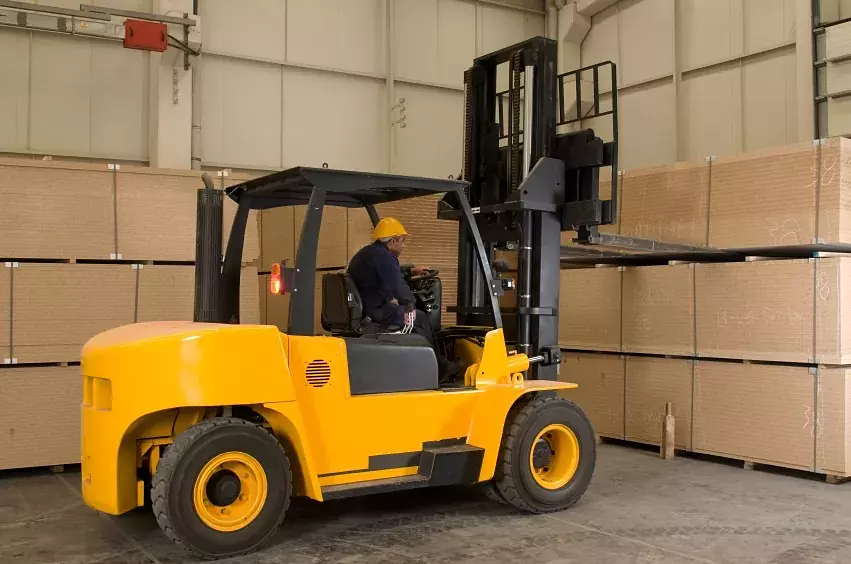 Forklifts are no different than other vehicles and machines. They, too, require regular maintenance and a little bit of tender, love and care. As forklifts develop general wear and tear, they will also sometimes require routine or unique repairs. Maintaining or repairing a forklift is not as difficult as it seems, adhering to a stringent schedule and prompt address of any performance issues can result in optimal performance and prolonged longevity of any forklift. Here are five basic maintenance tips to keep your new or used forklift in great shape.
Forklifts are no different than other vehicles and machines. They, too, require regular maintenance and a little bit of tender, love and care. As forklifts develop general wear and tear, they will also sometimes require routine or unique repairs. Maintaining or repairing a forklift is not as difficult as it seems, adhering to a stringent schedule and prompt address of any performance issues can result in optimal performance and prolonged longevity of any forklift. Here are five basic maintenance tips to keep your new or used forklift in great shape.
1) Always Check Tires
This can be one of the most important routines that any forklift owner engages in. Checking tire pressure is a great method to avoid accidents, assure proper usage and maximize gas economy. Under inflated tires can result in poor traction which can ultimately cause accidents. On the contrary, overinflated tires can blow out and put any forklift out of service in the most inconvenient time. Keep a tire gauge handy and check your tires once a week, inflate to appropriate pressure and make the most of your forklift operation.
2) Change Oil Every 3 Months
Changing oil in a forklift is the exact regimen to changing oil in a car. Regular oil replacement often aids longevity and provides premiere utilization. This is one of the truest and most proficient practices that is proven most effective. Change the oil in your forklift every three months to increase fuel economy, improve overall performance and prevent engine issues.
3) Check Antifreeze Levels
Checking the antifreeze prior is another essential tactic. When a forklift has little to no antifreeze, it can overheat or worse freeze. Often this occurs at the most inconvenient times, in the midst of an intense operation. Avoid the dilemma and check your forklift antifreeze reservoir and top off as needed. Inspect the reservoir and radiator for any leaks that may cause reductions in levels. In the discovery of a leak, install a new radiator or simply plug the hole.
4) Keep A Watchful Eye On Those Brakes
Brake malfunction can foster disastrous consequences. It is important to address any brake issues as they emerge, predominantly as the brake gets softer and as operators are forced to push harder to engage the brake system. Changing brake pads or calipers can take minutes but failing to do so can create situations that are hazardous or even deadly.
5) Maximize Your Forklift Warranty
Max out any warranty and yield the best results. While warranties are rarely utilized, they are extraordinarily useful when needed. A warranty guarantees any part that is under coverage for a specified amount of time or mileage. In many instances, some warranties can last a lifetime and assure replacement of any malfunctioned parts for the duration of its use. While warranties may cost more in the short-term, in the long term they can save owners thousands of dollars.
